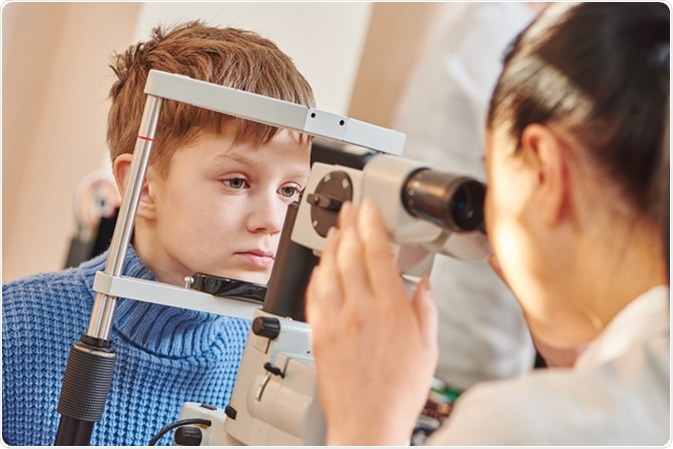Is Refractive Surgery Right for You? Elements to Think About for Better Eyecare
In the realm of eye care, the decision to go through refractive surgical procedure is a significant one that requires thoughtful consideration. As individuals look for quality and liberty from the constraints of restorative lenses, countless factors enter play when figuring out the viability of such a treatment. From the intricacies of one's ocular health and wellness to the ins and outs of daily routines and individual assumptions, each aspect holds relevance in the more comprehensive landscape of refractive surgical procedure candidateship. By assessing these crucial elements with treatment and accuracy, a more clear course in the direction of notified decision-making emerges.
Eye Wellness Analysis
When taking into consideration refractive surgical procedure, a detailed eye health and wellness evaluation is crucial to evaluate the viability of the treatment for each person. neurologist andalusia. This analysis includes a collection of evaluations and examinations carried out by an eye care specialist to determine the total health of the eyes, the existence of any hidden conditions, and the security of the refractive mistake
Throughout the examination, various variables are considered, such as the patient's case history, present eye prescription, corneal density, pupil dimension, and tear film top quality. These evaluations aid to determine any type of contraindications to refractive surgical procedure, such as corneal abnormalities, cataracts, or unattended eye infections. Furthermore, the analysis assists to manage person expectations relating to the potential results of the surgical procedure based on their unique eye features.
Ultimately, the eye health and wellness examination is essential in making sure the safety and security and effectiveness of refractive surgery, as it offers useful understandings right into the person's eye wellness standing and helps determine the most suitable treatment options for attaining optimum aesthetic outcomes. (neurologist andalusia)
Lifestyle Evaluation
A thorough way of life assessment is important in determining the viability of refractive surgery for a person's aesthetic adjustment requirements. Lifestyle aspects such as occupation, pastimes, and daily activities play a crucial duty in the decision-making process relating to refractive surgical treatment.
Moreover, lifestyle routines such as sporting activities participation, outside tasks, or perhaps skincare regimens can affect the healing process and general success of refractive surgical treatment. For example, individuals that involve in call sports may need to take additional preventative measures to protect their eyes during the healing duration. Furthermore, people with comprehensive sun direct exposure might call for added post-operative treatment to protect against issues. By carrying out an extensive way of life evaluation, eye care experts can tailor their suggestions and treatment plans to meet the special requirements of each individual, eventually causing enhanced aesthetic outcomes and complete satisfaction.
Assumption Alignment

Establishing practical assumptions involves thorough pre-operative conversations in between the client and the ophthalmologist. The cosmetic surgeon should transparently connect the prospective risks, advantages, and restrictions of the treatment (eye center andalusia). Clients require to comprehend that while many people achieve 20/20 vision or far better following refractive surgical treatment, some might still useful link need glasses for particular activities like reading or driving at evening. Managing these assumptions aids stop disappointment and frustration post-surgery, resulting in an extra positive general experience for the client.
Threat Analysis

Aspects that may raise the threat of problems consist of age, certain medical problems like autoimmune conditions, unstable vision prescription, thin corneas, and unrealistic individual assumptions. Additionally, picking a experienced and knowledgeable cosmetic surgeon, complying with pre and post-operative treatment instructions vigilantly, and revealing any kind of pertinent case history can help alleviate threats.
To minimize the possibility of issues, eye doctors perform thorough pre-operative assessments to determine any kind of contraindications to surgery. They also talk about the prospective threats and advantages with patients during the appointment procedure. By taking part in open interaction and shared decision-making, both the eye doctor and the individual can collaborate to determine if refractive surgery is the right choice based upon specific threat accounts and preferred end results.
Assessment Relevance
Considering the critical role of educated decision-making in analyzing threats and prospective complications in refractive surgery, the consultation procedure holds considerable significance in directing patients in the direction of ideal outcomes. Throughout the assessment, the ophthalmologist evaluates the person's eye health and wellness, refractive errors, and total suitability for surgery. This first analysis is critical in figuring out the most ideal procedure for each person, taking into consideration variables such as corneal thickness, pupil dimension, and existing eye conditions.
In addition, the examination works as a possibility for clients to review their expectations, problems, and any type of questions they might have regarding the surgical procedure. Clear communication in between the patient and the doctor is necessary to guarantee practical expectations and a thorough understanding of the prospective threats and benefits included.
In addition, the assessment allows the doctor to explain the different medical options available, their corresponding end results, and the post-operative care needed. This comprehensive discussion equips people Get More Info to make well-informed decisions regarding their eye treatment, leading to better satisfaction and results post-surgery.
Final Thought
Finally, individuals considering refractive surgical treatment must undertake a thorough eye health assessment, examine their way of living behaviors, straighten their assumptions with possible outcomes, analyze the associated risks, and prioritize examinations with eye care experts. These aspects play a crucial role in determining the suitability of refractive surgery for each person, ensuring optimum end results and contentment with the treatment.
People taking into consideration refractive surgical procedure usually have high assumptions pertaining to the end results, expecting perfect vision without the requirement for glasses or call lenses. While refractive surgical treatment can significantly enhance vision and lower dependence on visual aids, it is crucial for people to recognize that results may differ based on private elements such as the level of refractive mistake, corneal density, and general eye health.
By involving in open communication and shared decision-making, both the ophthalmologist and the individual can function together to establish if refractive surgical treatment is the right selection based on private threat profiles and desired results.
Thinking about the vital role of educated decision-making in examining risks and prospective complications in refractive surgical procedure, the assessment process holds significant value in guiding individuals in the direction of ideal end results. During the examination, the ophthalmologist evaluates the patient's eye health and wellness, refractive mistakes, and general viability for surgery.
 Mara Wilson Then & Now!
Mara Wilson Then & Now! Loni Anderson Then & Now!
Loni Anderson Then & Now! Monica Lewinsky Then & Now!
Monica Lewinsky Then & Now! Lynda Carter Then & Now!
Lynda Carter Then & Now! Pierce Brosnan Then & Now!
Pierce Brosnan Then & Now!